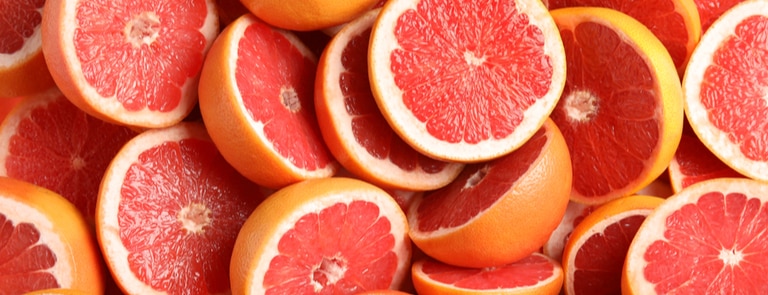10% off £30 OR 15% off £40
Ayurveda - definition, benefits & diet

Widely practised in Asia for the last 3,000 years, the tradition of Ayurveda has gained popularity in the west in recent years.
Now integrated with other traditional practices such as yoga, Ayurveda was documented in the sacred historical texts known as the Vedas.1
Here we explore what Ayurveda is, alongside the benefits and diet of Ayurveda as a lifestyle choice.
What is Ayurveda?
Ayurveda, also known as ayurvedic medicine, is a whole body healing system, which is based on the belief that there is a delicate balance between the mind, body and spirit. And that our health and wellness is dependent on this being in balance.2
The word Ayurveda comes from comes from the Sanskrit words for life (ayur) and knowledge (veda).3
Vata, pitta and kapha
Ayurveda works on the basis that there are three principle energies (or doshas) with are present in everyone and everything.
There are no single words in English that can easily convey, this so the Sanskrit words vata, pitta and kapha are used instead.4
Interestingly, each person has a unique mix of these three doshas and one is usually stronger than the other two.
It is believed that these doshas should be kept in balance, in order to avoid illness.
Vata dosha (air and space)
Believed to be the most powerful of the three doshas, vata controls basic body functions such as breathing, blood flow and heart function.
This dosha can be disrupted by eating too soon after a meal, fear, grief and staying up too late.5
Characteristics of vata include creativity and energy. People where vata is dominant usually have a slim frame. And when this is out of balance, it is thought that they may experience digestive issues, fatigue and anxiety.6
Pitta dosha (fire and water)
Pitta is believed to regulate all of the metabolic processes in the body, as well as body temperature and hormonal balance.
Large portions of food, extreme exercise and heat are considered to disrupt this dosha.7
People who have pitta as their dominant dosha are hard-working, intelligent and decisive, with a medium physical build and a short temper.
When this is out of balance, the belief is that you may experience indigestion.8
Kapha dosha (earth and water)
Kapha is thought to control the growth of muscles, strength in the body, stability, weight and the immune system.
Sleeping during the day, eating too many sweet foods and too much salt or water can disrupt it.9
Kaphas are calm, grounded and loyal with a sturdy frame. An imbalance can cause weight gain and depression.10
What are the benefits of Ayurveda?
There are thought to be lots of benefits to consistent use of Ayurveda. These include:
-
Weight management
A healthy diet and eating habits through Ayurvedic treatment can help to lose weight and achieve a toned body.11
What your diet will look like will depend on your dominant dosha and we will explore this more below.
-
Helps you to become more mindful
Mindfulness is an important part of Ayurveda and it is the practice of focussing on how you feel in the present.
Mindful eating can also help to increase self-control and help you to develop a healthy relationship with food.12
How to follow an ayurvedic diet
When planning your ayurvedic diet, you must first determine what your mix of doshas is and which one is dominant. Our descriptions above may be able to help with this.
An ayurvedic eating plan provides guidance for when you eat and what you eat. This diet includes foods which have gone through minimal processing.13
Vata
Foods to eat: sweet fruits, cooked vegetables, grains such as quinoa, red lentils, dairy products in moderation, beef, eggs, fish, black pepper, coriander, peanuts, pecans, chia, flax seeds, sesame oil, ghee.
Foods to avoid: dried fruit, raw apples, watermelon, frozen vegetables, raw vegetables, dried vegetables, potatoes, barley, corn, chickpeas, yogurt, lamb, turkey, red wine, chocolate.14
Pitta
Foods to eat: raisins, watermelon, sweet or bitter vegetables, dry cereal, pasta, black beans, unsalted butter, chicken, egg whites, almonds, coconut.
Foods to avoid: apricots, avocado, pungent vegetables, sour fruits, spinach, bread, rye, soy sauce, salted butter, sour cream, beef, chili pepper, seafood, chocolate.15
Kapha
Foods to eat: astringent fruit, pungent or bitter vegetables, granola, polenta, cottage cheese, prawns, turkey.
Foods to avoid: sweet or sour fruits, sweet or juicy vegetables, cooked oats, rice, pasta, pancakes, wheat, kidney beans, cheese, duck, tofu, freshwater fish, ketchup, chocolate.16
5 ways to improve health and wellbeing
Health and wellbeing is important to all of us. Find out 5 ways in which you can improve your physical and mental wellness.


Last updated: 22 April 2021
- https://www.livescience.com/42153-ayurveda.html
- https://www.webmd.com/balance/guide/ayurvedic-treatments#1
- https://www.livescience.com/42153-ayurveda.html
- https://www.ayurveda.com/resources/articles/ayurveda-a-brief-introduction-and-guide
- https://www.webmd.com/balance/guide/ayurvedic-treatments#1
- https://www.healthline.com/nutrition/ayurvedic-diet#the-diet
- https://www.euroved.com/en/ayurveda/test/pitta/
- https://www.healthline.com/nutrition/ayurvedic-diet#the-diet
- https://www.webmd.com/balance/qa/what-is-kapha-dosha-in-ayurveda
- https://www.healthline.com/nutrition/ayurvedic-diet#the-diet
- https://www.yo1.com/health-guide/the-benefits-of-practicing-ayurveda.html
- https://pubmed.ncbi.nlm.nih.gov/30154740/
- https://www.verywellfit.com/ayurvedic-diet-for-weight-loss-4154620
- https://www.verywellfit.com/ayurvedic-diet-for-weight-loss-4154620
- https://www.verywellfit.com/ayurvedic-diet-for-weight-loss-4154620
- https://www.verywellfit.com/ayurvedic-diet-for-weight-loss-4154620













